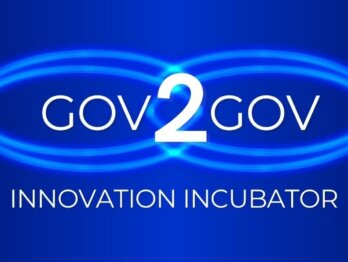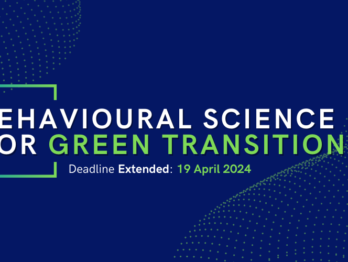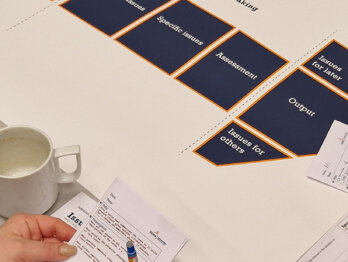OECD Gov2Gov Innovation Incubator: Submit your innovation challenge

Years of experience of working with governments on harnessing innovation in the public sector have shown that innovation challenges are often common across governments. By the same coin, many governments have experiences of successfully overcoming a comparative challenge. They can act as beacons, shedding light and expediting innovation learnings and solutions.
To bring a collaborative and transformative leap in overcoming innovation obstacles, the OECD is launching a Government-to-Government (Gov2Gov) Innovation Incubator from October 2024 to March 2025. Supported by the EU’s Horizon Europe programme, the incubator will provide a safe space for government teams to come together across borders. Under the auspice of an Advisory Board and panel of OECD experts, teams will share challenges and lessons learned, and think collectively and creatively about potential solution.
Two consecutive calls for application take place to operationalise the Gov2Gov Incubator. The first call, below, targets applications from governments with innovation challenges (“challenge owners”). A carefully reviewed and curated list of challenges will subsequently feed into the second call for applications, issued to governments with practical experience in overcoming a comparable challenge (“solution providers”). These teams will share their experiences in leading innovation and bring visibility to their initiatives. With the support of an Advisory Board, government challenge owners and solution providers will be matched to participate in the Gov2Gov Incubator’s structured problem-solving exchange.
Seeking “challenge owners”: Submit your innovation challenge
If you are a public sector official with a gnawing innovation challenge at hand, then this is for you. Submit your team and innovation challenge the Gov2Gov incubator form (here) by 14 January 2024 22 January 2024 (Extended).
Together with an Advisory Board, four challenges and their teams will be selected before mid-April 2024. With the aim to maximise the learning potential for governments facing similar challenges globally, the criterion for selection is based on team commitment as well as the global relatability of the challenge.
Following the selection, OECD innovation experts will work together with the government teams to redefine and reframe the challenges to fit within the incubation process features and widen its resonance with other governments worldwide. Following this first collaboration, we will call and select government peers to join our journey and share their experiences and learnings to solve similar challenges.
Challenge ideas
The Gov2Gov Incubator invites government teams to submit challenges that, among others, require effective engagement with innovation partners, can benefit from well designed experimentation, aim to improve public sector innovation culture, and involve strategic up-skilling of public servants.
Potential challenges are not limited to, but might include:
- How might we diversify the engagement and collaboration with innovation partners (including universities, civil society organisations, start-ups, among others)?
- How might we design and promote spaces and projects for experimentation?
- How might we support intrapreneurship and working productively with risk-taking within public sector organisations?
- How might we use systemic approaches to approach wicked problems?
- How might we create programs for innovative up-skilling among public servants?
We strongly encourage teams to build upon or bring forward their very own challenges.
Frequently Asked Questions
Who can submit a challenge?
We welcome submissions from public officials at all levels of government, be it local, regional, national or federal/central administrations.
What are the selection criteria for submitted challenges?
We understand that each challenge is different, and every submission will be carefully evaluated. Yet, with the aim to maximise the learning potential for governments globally, the criteria for selection will be based on the relatability of a challenge across borders, whether the challenge lends itself to the format and timeframe of the incubator, and the extent to which OECD expertise can effectively support the provision of solutions. In addition, we are looking for challenges whose insights gained through the incubator have a relatively high likelihood of being implemented.
Yet, do not fret – if we think your challenge has potential, we will work together to reframe its parameters and scope in order to generate actionable insights from your participation in the programme.
Are there costs associated with participation?
No! The Gov2Gov Innovation Incubator allows selected teams to participate free of charge, thanks to the funding from the European Union’s Horizon Europe programme covering the Incubator running costs. However, please note that participation in the Incubator programme requires active engagement and time commitment from selected teams.
What is the expected time commitment of selected teams?
Selected participants will need to be able to commit to the working sessions (at least one per month during the incubation process) with OPSI experts, international peers and the Advisory Board; as well as to complete assignments or task in-between the incubator sessions. Please note that the timeframe of the incubation process depends on the nature of the challenge and will be assessed and decided together with the selected participating teams. During this period, regular meetings, workshops and learning sessions will take place with OECD staff, independent advisors and international peers.

Still have questions or inquiries? Get in touch with us at [email protected]
This project and blog are funded by the European Union. Its contents are the sole responsibility of the OECD and do not necessarily reflect the views of the European Union.
The Gov2Gov Innovation Incubator builds on the OPSI’s Innovation Incubator programme experience and framework, held together with Romania, Belgium and Portugal in 2020-2021.













